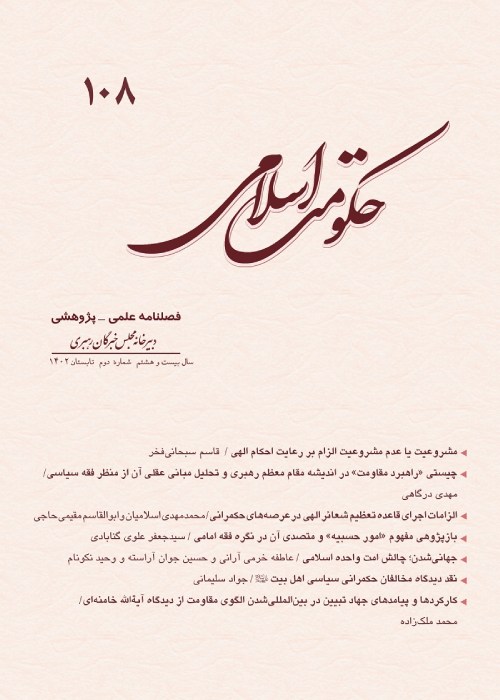Ruling Standards of Transparency in the Islamic Government
Transparency is one of the applied political-moral terms which has to be precisely delineated and delimited in terms of the standards to which one refers to make a true judgment on its truth or falsity in different circumstances. The research question of this paper is that whether transparency in the Islamic government can be taken to be a major principle or not. If so, what is the standard of transparency in the Islamic government regarding different things? As a matter of fact, the main question of this research which has been conducted drawing upon analytic-citation method is that how far and to what extent the functions of a ruler in the religious government should be transparent and how one can set a criterion for the necessity or lack of necessity of transparency in the functions of rulers or in the structure of the government. Findings of the research demonstrate that the standard of justice-security, together with the Muslim guardian jurist’s authoritative (wilāī) judgement can be regarded as a standard for discerning the realm of transparency in the religious government. According to this standard, as long as transparency does not contradict justice, transparency is a matter of urgency, though in certain cases where justice is difficult to discern, another complementary standard which is to be presented is security. According to this complementary element, as long as security – in varying aspects – is not questioned, transparency is urgent. However, in certain cases, due to the conflicts of interests, security may also not be defining. In this case, the authoritative judgement of a Muslim gurdian jurist which functions as a virtuous paradigm, will delimit boundaries of transparency.
- حق عضویت دریافتی صرف حمایت از نشریات عضو و نگهداری، تکمیل و توسعه مگیران میشود.
- پرداخت حق اشتراک و دانلود مقالات اجازه بازنشر آن در سایر رسانههای چاپی و دیجیتال را به کاربر نمیدهد.


